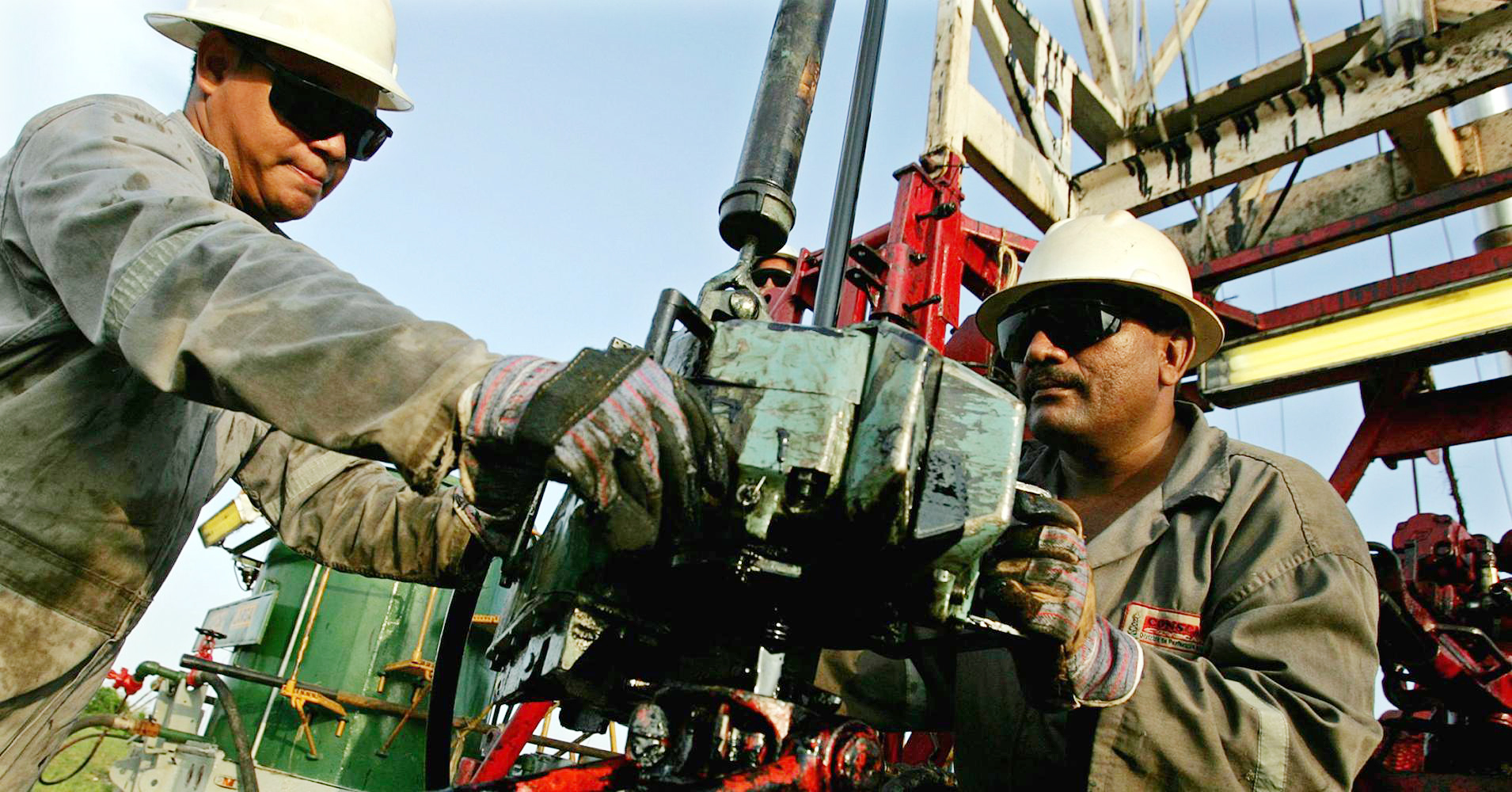Multiple parties to blame for decline in oil prices, scholars say

Oil workers drill for petroleum at a well in Lagunillas on the eastern shore of Lake Maracaibo near Maracaibo in Venezuela.
On Nov. 27, the Organization of Petroleum Exporting Countries (OPEC) announced it would maintain its output of petroleum at 30 million barrels per day even as the world oil prices slipped to $73 per barrel. By Dec. 19, international oil prices had dropped 48 percent from the price of $107 in June this year to $55.91 per barrel, sending shockwaves through the global economy.
In his review article titled “The Cheapening of Oil and What It Means” published on the official website of the Atlantic Council, Robert Manning, a senior research fellow at the Brent Scowcroft Center for International Security at the Atlantic Council, probed causes for the steep decline of oil prices.
Manning said the OPEC meeting reflects not only the growth in oil and gas production, particularly that of the United States, but also the world’s entry into a phase of “what some have called peak demand”.
The nosedive in oil prices will lower the growth of US crude oil production in 2015, but it can be predicted that the annual total crude oil output will nevertheless reach a record high not seen since 1972. On the other hand, the slowdown of developed economies can hardly be expected to generate a strong demand for oil.
An additional factor that has come into play is an American revolution in the exploitation of shale oil and gas using the hydrofracturing method, which has exerted a profound influence on global oil suppliers, weakening the clout of OPEC in the world oil market.
Barry Naughten, an energy political economist and international relations specialist at Australian National University, noted that the constant fall of oil prices shows that economic interests are taking a backseat to geopolitics.
The Saudi’s refusal to endorse production cuts at the Nov. 27 OPEC meeting has been depicted as an attempt by the United States to place continued pressure on the three “price hawks,” namely Russia, Iran and Venezuela, through targeted economic sanctions, Naughten said.
In the oil price war, “within OPEC, the Saudis and other (Persian) Gulf producers will be real winners, rather than the US,” Manning wrote. The US and other oil-consuming nations, particularly in the less-developed areas like Africa, the Caribbean, and much of East and South Asia also will benefit, he said.
“The biggest losers will be Russia, Iran and Venezuela, along with other OPEC members, and the Saudis’ main target is US shale producers,” Manning added.
Manning said that most shale oil can still turn a profit if oil is in the $70-$80 range. But as the price of oil goes below $80, it becomes increasingly difficult for shale producers. By cutting oil prices, the Saudis are attempting to squeeze shale oil out of the market.
Dale Bremmer, a professor of economics at the Rose-Hulman Institute of Technology, said that in the short term, lower gas prices have boosted the purchasing power of consumers. However, in the long run, if the global economy continues to slow down, which would hurt an already weak labor market, there will be a lasting negative impact.
As far as the United States is concerned, decreases in oil-related revenues are detrimental to the energy sector, while profit declines will also bring stock prices down and make its unemployment problem even worse.
“A period of sustained lower prices of crude oil would in turn increase US dependence on fossil fuels and raise the associated environmental costs. The incentive to invest in alternative energy sources would be reduced as they become less competitive,” he said.
